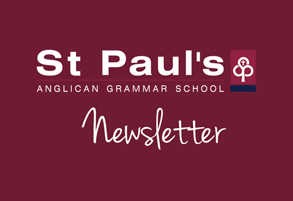In this issue
Careers News
What’s On:
• Warragul Secondary School
• Warragul Junior School
• Traralgon Secondary School
• Traralgon Junior School
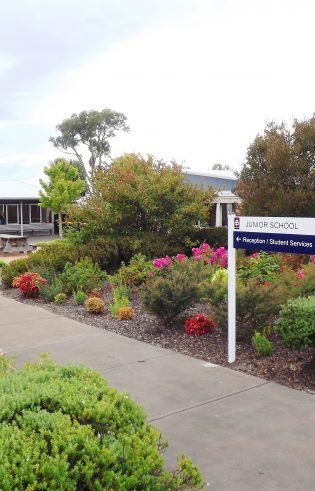
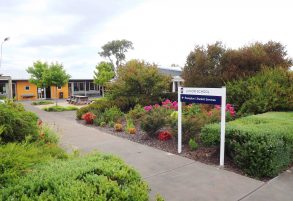
WHAT’S ON Traralgon Junior School
MAY 2 May District Cross Country Years 5 and 6 Jane Goodwin Author visit 4 May State Bowls St Paul’s Alumni Association, Annual General Meeting, Warragul Secondary School Library, 7:30 pm 5 May School Photos 10 May Studio Concert 11 May Mother’s Evening Special Event, 5:30 pm to 7:00 pm …
WHAT’S ON Traralgon Junior School
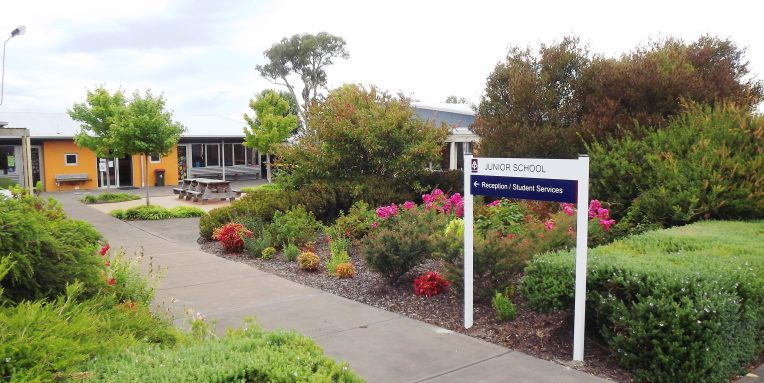
MAY
2 May District Cross Country
Years 5 and 6 Jane Goodwin Author visit
4 May State Bowls
St Paul’s Alumni Association, Annual General Meeting, Warragul Secondary School Library, 7:30 pm
5 May School Photos
10 May Studio Concert
11 May Mother’s Evening Special Event, 5:30 pm to 7:00 pm
12 May Mother’s Day FOSP Stall
13 May Open Day, 10:00 am to 2:00 pm
17 May Anniversary Service
Division Cross Country
19 May Kammer Konzert
22 May State Tennis
Studio Concert
23 May Learning to Read: Parent Information Session, 7:00 pm
District Winter Sport
24 May National Simultaneous Storytime
26 May National Sorry Day
29 May Reconciliation Week
30 May ELC photos
JUNE
1 June Region Cross Country
ELC photos
2 June Years 3 to 6 Netball Clinics
7 June Division Winter Sport
9 June Student Free Day
12 June King’s Birthday Public Holiday
15 June Years 5 and 6 Endeavour Showcase
16 June Centrepiece
21 June Classroom EXPO Afternoon, 2:30 pm
ELC Winter Solstice
23 June BOHO Friday
End of Term 2, 2:20 pm finish
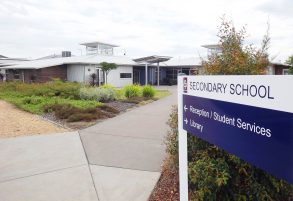
WHAT’S ON Traralgon Secondary School
MAY 2 May Author Visit – Jane Goodwin 4 May SEISA Athletics Carnival St Paul’s Alumni Association, Annual General Meeting, Warragul Secondary School Library, 7:30 …
WHAT’S ON Traralgon Secondary School
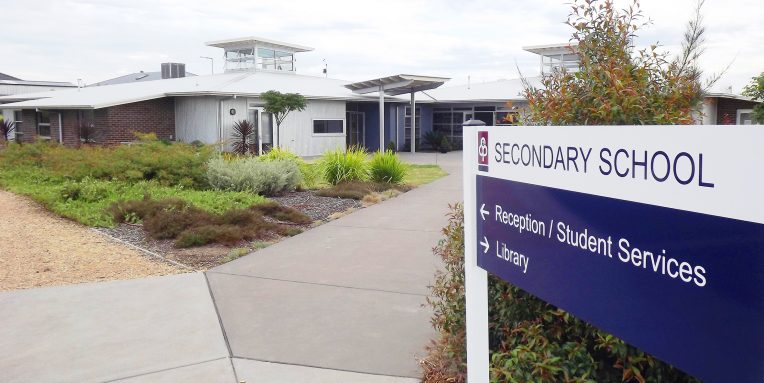
MAY
2 May Author Visit – Jane Goodwin
4 May SEISA Athletics Carnival
St Paul’s Alumni Association, Annual General Meeting, Warragul Secondary School Library, 7:30 pm
5 May East Timor Movie Night, 6:00 pm
8 May SEISA Victorian Sports Association Swimming Championships
DAV Debating, Round 2
10 May Studio Concert
11 May SEISA Winter Junior Sport, Round 1
12 May SEISA Golf Day
13 May Open Day, 10:00 am to 2:00 pm
17 May Anniversary Assembly
18 May SEISA Winter Junior Sport, Round 2
19 May Kammer Konzert
22 May DAV Debating, Round 3
Studio Concert
JUNE
1 June SEISA Winter Junior Sport, Round 3
8 June SEISA Winter Junior Sport, Round 4
9 June Student Free Day
12 June King’s Birthday Public Holiday
15 June SEISA Winter Junior Sport, Round 5
16 June Centrepiece
20 June SEISA Intermediate/Senior Trials
22 June SEISA Winter Junior Sport, Finals
Cross Country Trials
23 June Boho Friday
End of Term 2, 2:10 pm finish
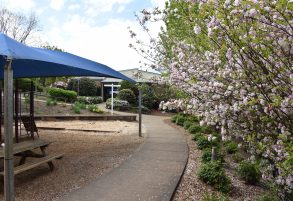
WHAT’S ON Warragul Junior School
MAY 1 to 5 May Year 6 Camp Coolamatong 2 May Division Athletics (selected students only) 4 May St Paul’s Alumni Association, Annual General Meeting, …
WHAT’S ON Warragul Junior School
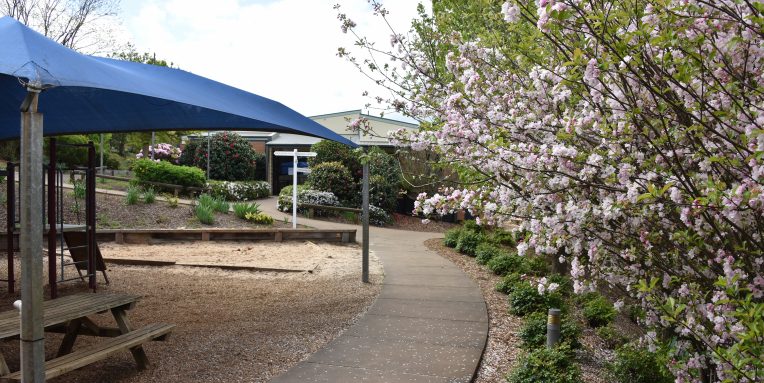
MAY
1 to 5 May Year 6 Camp Coolamatong
2 May Division Athletics (selected students only)
4 May St Paul’s Alumni Association, Annual General Meeting, Warragul Secondary School Library, 7:30 pm
12 May Mother’s Day Stall
13 May Open Day, 10:00 am to 2:00 pm
17 May Whole School Anniversary Assembly, Secondary School Gymnasium, 10:30 am
Studio Concert, Warragul Secondary School, Parker Centre and Science Centre Lecture Theatre, 7:00 pm
23 May Division Cross Country (selected students only)
24 May National Simultaneous Storytime
26 May National Sorry Day
Family and School Photos
27 May to 3 June Reconciliation Week
JUNE
1 June Regional Cross Country (selected students only)
5 June Parent Prayer Group, Prideaux Centre, 9:00 am
9 June Student Free Day
12 June King’s Birthday Public Holiday
13 June Prep Community Excursion
23 June End of Term 2, 2:20 pm finish
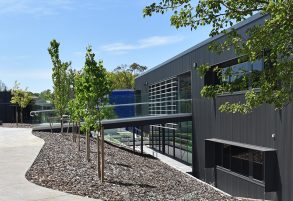
WHAT’S ON Warragul Secondary School
APRIL 28 April Year 9 City Experience – Day Two, Melbourne CBD, 7:06 am to 4:48 pm Presentation Ball Rehearsal, Lardner Park, 11:00 am to …
WHAT’S ON Warragul Secondary School
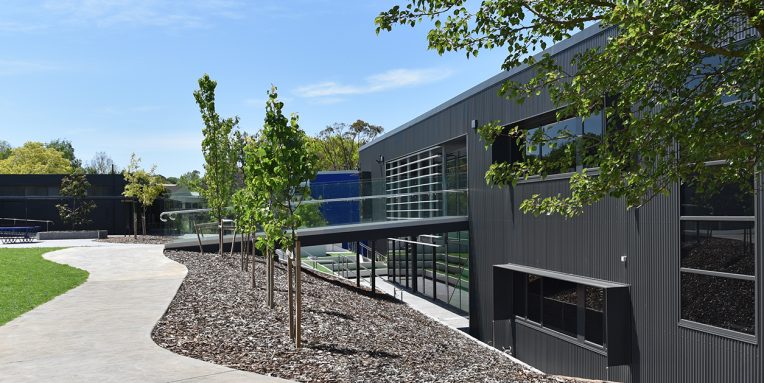
APRIL
28 April Year 9 City Experience – Day Two, Melbourne CBD, 7:06 am to 4:48 pm
Presentation Ball Rehearsal, Lardner Park, 11:00 am to 3:10 pm
29 April Presentation Ball, Lardner Park, 6:00 pm
MAY
1 May Live4Life Year 8 Launch Event, West Gippsland Arts Centre, 9:30 am to 12:15 pm
1 May to 3 May Year 11 VET Sport and Recreation Bushwalking Camp, Mitchell River
4 May SEISA Athletics Carnival, Casey Fields Regional Athletics Centre, 8:45 am to 4:30 pm
Years 11 and 12 Theatre Studies Performance and Director’s Forum – SAC Assessment, 7:00 pm to 8:45 pm
St Paul’s Alumni Association, Annual General Meeting, Warragul Secondary School Library, 7:30 pm
5 May Team Timor Social Night, Warragul Secondary School Library, 6:00 pm to 8:30 pm
Years 11 and 12 Theatre Studies Performance and Director’s Forum – SAC Assessment, 7:00 pm to 8:45 pm
7 May Sport Aerobics Regional Qualifiers, Patterson River Secondary College, 7:45 am to 3:30 pm
8 May Combined SEISA Victorian Sports Association Swimming Championships, Melbourne Sports Centres (MSAC), 12:45 pm to 10:00 pm
9 May House Cross Country
11 May SEISA Winter Junior Sport, Round 1
Practice GAT, Year 12 and some Year 11 students, 1:30 pm to 3:00 pm
12 May Sport Aerobics Training, Warragul Secondary School Gymnasium and Dance Studio, 6:55 am to 8:15 am
SEISA Golf Day
13 May Open Day, 10:00 am to 2:00 pm
17 May Studio Concert, select Performing Art students, DT Parker Centre and Science Lecture Theatre, 7:00 pm to 8:30 pm
18 May SEISA Winter Junior Sport, Round 2
Parent Feedback Session My Careers (ZOOM), Years 9, 10 and 11 families, 7:00 pm
19 May Sport Aerobics Training, Warragul Secondary School Gymnasium and Dance Studio, 6:55 am to 8:15 am
Year 9 City Experience – Day Three, Melbourne CBD, 7:06 am to 4:48 pm
Kammer Konzert Rehearsal, Science Centre Lecture Theatre, 5:00 pm to 6:00 pm
19 May Kammer Konzert, Science Centre Lecture Theatre, 7:00 pm to 9:00 pm
25 May SEISA Music Day 1, select Performing Art students, 9:00 am to 4:30 pm
DAV Debating – Round 2, St Margaret’s Berwick Grammar, 4:15 pm to 10:00 pm
26 May Sport Aerobics Training, Warragul Secondary School Gymnasium and Dance Studio, 6:55 am to 8:15 am
SEISA Music Day 2, select Performing Art students, 9:00 am to 4:30 pm
Family and Catch Up School Photos, Warragul Junior School Gymnasium
Years 7 and 8 Disco, 7:00 pm to 9:00 pm

CAREERS NEWS
Welcome back to Term 2. I hope you all had a wonderful break and are keen and eager for this term. As this is a …
CAREERS NEWS
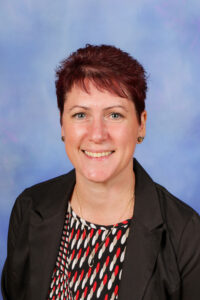
Welcome back to Term 2. I hope you all had a wonderful break and are keen and eager for this term. As this is a short term, it is important that students are checking their calendars and have placed any important dates in them. One date that is coming up is the closing deadline for UCAT which is required for anyone considering applying for medicine in 2024. You need to have registered for UCAT by 17 May. This is an assessment that is conducted through a separate entity to St Paul’s so applications need to be done through their website: UCAT bookings
I hope you all have a wonderful term and if you have any questions, please do not hesitate to contact me via email sluck@stpaulsags.vic.edu.au to make an appointment or to have a conversation over the phone.
“Education is the most powerful weapon which you can use to change the world.” – Nelson Mandela
Sarah Luck
Head of Careers
sluck@stpaulsags.vic.edu.au
Open Days and Information Sessions
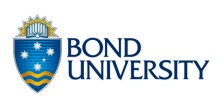
Virtual Open Day
Saturday 29 April 2:00 pm – 4:00 pm
The Bond University virtual open day experience makes it possible to get to know university life at the click of a button and see for yourself why the Gold Coast is Australia’s favourite classroom. Tune in at any time to dive deeper into the faculties and student life, and chat with some amazing Bond students in this unmissable snapshot of the Bond University experience.
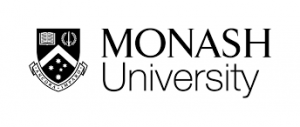
Monash Rural Health – Applying for Medicine Webinar
Monday 8 May from 5:00 pm – 6:30 pm
Hear from Monash staff, students and alumni about their internationally recognised medical program and find out all the information you need to know before applying this year. This webinar will cover:
- Medicine at Monash and pathways into medicine
- Entry schemes specifically for rural and regionals students
- How to apply and important dates for your diary
- Opportunities to complete your placements across regional Victoria with Monash Rural Health
This webinar will be recorded, so please register, even if you are unable to attend live, you can receive the link via email afterwards.
Click here to register: Applying for Medicine webinar
Job Spotlight
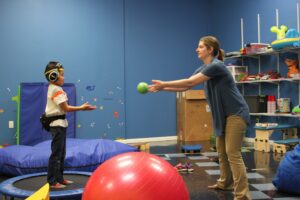
How to become an Occupational Therapist
Occupational Therapists (OTs) are qualified health professionals who work with people of all ages if they have been sick, injured or disabled. OTs help their patients to adapt, develop or improve abilities that allow them to participate better in all aspects of life, including daily tasks, self-care, working and volunteering, as well as participation in hobbies, interests and social events.
OTs work in hospitals, specialist clinics, private offices, schools, care facilities and out in the community. People who enjoy helping, are patient, good problem-solvers and great with people from all walks of life could potentially enjoy a career as an Occupational Therapist.
About you:
- Patient, compassionate and empathetic
- Creative and good at problem-solving
- Organised, great at time management with a flexible attitude
- Practical, fit, and observant
- Excellent interpersonal and communication skills
- Enthusiastic and a good motivator
The job:
- Conduct tests and assess patients’ capabilities (mental, physical, developmental, etc).
- Develop, plan and implement treatment programs to improve affected movements or functions.
- Monitor and report on patients’ progress and help with the coordination of other services that might be needed.
- Help children with special needs or disabilities to be integrated into education programs in schools.
- Assess employees who have been injured or sick, help them return to work or find alternative duties they might be able to do.
- Design and modify the everyday environment of clients to allow for better access and independence.
- Recommend and advise on the use of specialised equipment.
- Assess the need for, develop and run health education programs including workplace health and safety.
- Act as consultants to industry and government organisations, insurers, medical practitioners and employers.
- Teach in academic institutions, generally at tertiary level.
Lifestyle Impact: Moderate
- Part-time opportunities: High – around 40 per cent of Occupational Therapists work part-time (source: labourmarketinsights.gov.au).
- Average hours for full-time workers: 41 hours a week, which is average (source: labourmarketinsights.gov.au).
- Occupational Therapists’ salary (median) is $63,000* per year (source: ato.gov.au). *Salaries vary depending on your skills and experience.
- Future career growth: Moderate (source: labourmarketinsights.gov.au).
- You can work in a variety of environments, including in hospitals, private clinics, aged care facilities, schools, workplaces and even at a patient’s home.
- The work can be stressful at times, working with people who may have been in serious accidents and suffering physical and mental trauma.
Occupational Therapists are most in demand in these locations:
Demand for Occupational Therapists is spread fairly evenly across Australia, with many Occupational Therapists working in capital cities. Most Occupational Therapists work in the Health Care and Social Assistance industry.
How to become an Occupational Therapist in Australia
You will need to complete relevant undergraduate studies, as well as register with the Australian Health Practitioner Regulation Agency (Ahpra) to work as an Occupational Therapist.
Step 1: Complete Year 12 with a focus on English and Maths. Biology and Health could also be useful.
Step 2: Complete an Ahpra-approved program of study, usually a Bachelor of Occupational Therapy. You can see all of the currently approved programs here.
Step 3: Once you have finished your studies, apply for general registration as an Occupational Therapist. You can read more about this here.
Step 4: Start working as a qualified Occupational Therapist.
Step 5: Keep your knowledge up to date with continuing professional development, and re-register with Ahpra each year.
Find out more here:
https://www.occupationaltherapyboard.gov.au
Find out more about alternative careers here: Alternate careers
Frequently Asked Questions (FAQs)
Do I need to go to university to become an Occupational Therapist?
Yes, you will need to complete an approved program of study (either at Bachelor or Master’s level) and register with Ahpra to work as an Occupational Therapist in Australia.
Where do Occupational Therapists work?
Occupational Therapists can work in a variety of different environments, including hospitals (both public and private), specialist and private clinics, aged care homes, workplaces, community centres, schools and more.
What are three things I can do right now to help me become an Occupational Therapist?
If you would like to find out if a career as an Occupational Therapist is right for you, here are a few things you could do right now:
- Do volunteer work in your school or community to start building important skills. This will also look good on any future university and job applications.
- See if you can find work experience in a health or care-based setting. This will help you see if you might enjoy the work, and can help you start building important contacts for the future.
- Talk to an Occupational Therapist to see what a day in their life is like. If you don’t know anyone, see if you can watch videos or documentaries about a career as an Occupational Therapist.
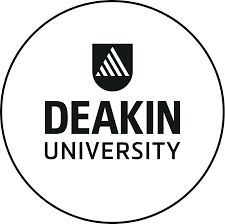
New Bachelor of Occupational Therapy at Deakin in 2024
Deakin has announced that the Bachelor of Occupational Therapy will be offered at their Warrnambool campus from Trimester 1, 2024, in addition to the Geelong Waterfront campus. For those students who are passionate about promoting good health and wellbeing and improving people’s quality of life, Deakin’s Bachelor of Occupational Therapy will equip them with the knowledge and skills to identify people’s strengths and limitations, environmental and social supports and barriers and the role these play in people’s ability to participate in occupations meaningful to them.
With job opportunities in the sector expected to grow by 23.3 per cent by 2026, students will graduate career-ready with the expertise to develop personalised, evidence-based intervention plans with people whose health and wellbeing are affected by issues including injury, illness, disability or environmental barriers. Students will participate in 1,000 hours of practice education placement, giving them invaluable hands-on experience.
Students attending schools in a regional or rural area will also be able to apply for this course through Deakin’s Regional and Remote Entry Scheme so they can improve people’s quality of life in their own communities.
Work Experience

During the holidays a number of students undertook work experience in a variety of roles including allied health, hospitality, manufacturing and engineering. If you would like to arrange work experience for the mid-year break, please collect a green form from the careers office and find an employer willing to take you! Come and see me or speak to family and friends if you need some ideas about your options. To find out more about what you might get out of work experience the following may be helpful.
If you are contemplating getting some work experience, you might think that most of your time will be spent observing. Understandably, you might be a bit confused about the skills you could be taking away. Not all work experience will be watching and learning (and even if it is, at least your observational and note taking skills will be top-notch by the end of it). In reality, you will probably be leaving your placement with new or improved technical skills that are specific to each job or industry.
Is that all?
Definitely not. There is way more to work experience. Just applying for a position and turning up will guarantee that you have demonstrable talents to add to your resume. Here are just a few examples of skills you will need at work and that you could develop when you sign up:
Problem-solving
You will not be expected to problem solve at work experience, but finding solutions to how you will get there each day, arrive on time and organise your day are all examples of this skill.
Time management
Arriving on time and getting tasks done are all a part of building this valuable skill.
Communication and other interpersonal skills
Having to work closely with your supervisor, other employees and customers means your verbal and non-verbal communication skills will get a workout. In addition to honing your communication talents, you might find that your active listening, clarity and diplomacy abilities are improved too.
Teamwork
Working well with other people, listening to them, following instructions, engaging and adding value in the workplace are all demonstrable teamwork skills, highly desired by most employers.
Professionalism
This includes looking the part, taking the job seriously, trying your best and using appropriate language.
Networking
Have you heard the phrase “it’s not what you know but who you know”? Well, it is very true in lots of aspects of life, so learning how to network could open up lots of opportunities for you.
Business etiquette
Watching and learning everything from how to write professional emails, the best way to answer the phone, when to step back from a situation and how to remain professional in all situations are invaluable when you are looking for paid work.
Initiative
If you finish a task and your supervisor is busy, wash up the mugs, do some filing, or ask around if there is another job you can do to help out – just be proactive. Also, let your employer know if you have an idea about trying something new or different that could help get the job done.
Work ethic
Do not complain or slack off and take advantage of the fact you are not at school, do not take excessive breaks or spend time on your phone. Do try your best, give everything a go and ask for help if you need it.
Willingness to learn
Be enthusiastic, show you are ready to listen and learn, try new things, follow instructions and do not be a know-it-all.
Computer, technical or practical skills
You probably already have a great understanding of technology, but using it in a workplace environment and using new programs, software and equipment will only expand your knowledge.
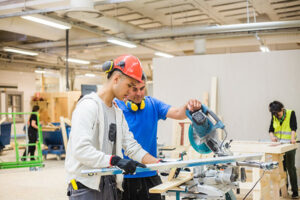
Customer service
Dealing with the public is not always easy, so learning how to handle tricky situations, keep customers happy, or just provide people with the information they need is a great skill to have in any industry.
Confidence and self-esteem
These might not sound like typical workplace skills, but they are really important as you go through life. They will help you reach goals, take opportunities, challenge yourself and ultimately help you move forward.
To get the most out of work experience…
Ask lots of questions at your placement to maximise the benefits of being there. Think about the skills you gained from your work experience and make sure you add them to your resume or portfolio.
To read the work experience guide by Study Work Grow click here: The Guide
University News

Studying Science at Monash University
Students interested in studying science at university might like to explore the following three courses offered at Monash.
Monash offers a comprehensive range of majors, extended majors, and minors – 26 in all – providing students with a broad education and allowing them to explore varied interests before focusing on the one or two areas that most inspire them. However, if a particular field has always captivated a student, they can choose it from the start. Students can choose majors from Applied Mathematics to Earth Science, Genetics, Psychology and more.
The VCE Year 12 prerequisites are: Units 3 and 4: a study score of at least 27 in English (EAL) or at least 25 in English other than EAL; Units 3 and 4: a study score of at least 25 in one of Biology, Chemistry, Environmental Science, Geography, Maths: Mathematical Methods, Maths: Specialist Mathematics, Physics or Psychology.
The ATAR for 2023 entry was 82.00.
This is a high-profile, Honours version of the Bachelor of Science for high-achieving students who intend to pursue careers as research scientists or for students who want to be leaders in their discipline.
This course offers students the opportunity to deepen and strengthen their science studies, usually by taking two majors, accelerating progress to higher-level units, and providing additional flexibility in their choice of units.
Graduates can expect to find employment in a variety of research careers, including scientific research work in both the university and industrial sectors.
The VCE Prerequisites are: Units 3 and 4: a study score of at least 35 in English (EAL) or at least 30 in English other than EAL; Units 3 and 4: a study score of at least 30 in Maths: Mathematical Methods; Units 3 and 4: a study score of at least 30 in two of Biology, Chemistry, Environmental Science, Geography, Maths: Specialist Mathematics, Physics or Psychology.
The ATAR for 2023 entry was 93.05.
This course is designed for students who aspire to be leaders in creating social change.
A degree in both Global Studies and Science will give students the skill set to understand the complex challenges facing cultures and communities around the world and the opportunity to apply their knowledge to affect change. With this combination, students will think globally and study globally – overseas travel is a requirement of the course.
The VCE prerequisites are: Units 3 and 4: a study score of at least 27 in English (EAL) or at least 25 in English other than EAL; Units 3 and 4: a study score of at least 25 in one of Biology, Chemistry, Environmental Science, Geography, Maths: Mathematical Methods, Maths: Specialist Mathematics, Physics or Psychology.
The ATAR for 2023 entry was 82.10.
Monash offers a range of science degrees. Find out more about all that is on offer at Science at Monash
University Snapshot
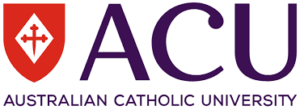
- ACU has over 32,000 students nationally spread over seven campuses across Australia and a campus in Rome. – ACU Campuses
- ACU is ranked second in Australia for graduate employer satisfaction, with more than 91 per cent of its graduates finding employment within four months of graduation and is ranked fourth in Australia for education and fourteenth in the world for nursing – Excellence at ACU.
- Besides its wide range of institutes and centres, ACU has four faculties:
- Education and Arts
- Health Sciences
- Law and Business
- Theology and Philosophy
- Student Accommodation is offered at a number of the ACU campuses.
- ACU has relationships with more than 200 universities and educational institutions in the Americas, Europe, Africa and Asia, with over 25 per cent of bachelor’s degree students travelling overseas during their studies. Students can attend an overseas university in more than 35 countries, complete international internships, and work in community programs around the world – all while receiving credit towards their degree – Study Abroad and Exchange and Study Overseas.
- Community engagement is also a core part of every student’s experience at ACU, to the point where it is embedded within its courses. This allows students to give back to their communities and make a difference through opportunities such as volunteer experience programs – Community Engagement.
- ACU has a number of alternative admission pathways including the recently launched ACU Guarantee. The ACU Guarantee program offers eligible Year 12 students a place at ACU based on their Year 11 results. Of course, the final exams still matter – and students still need to finish Year 12 to validate their offer – ACU Guarantee.
- ACU has an Elite Athlete and Performer Program (EAPP) which has been designed to support and encourage elite student athletes in managing both areas of their life to ensure that they achieve their goals. Elite athletes and performers have access to a range of support services, academic resources, and funding opportunities – Elite Athlete and Performer Program.
- ACU offers many courses and has introduced a number of new courses
University Courses

Film and Television Courses in Victoria in 2023
There are a number of institutions offering film and/or television courses in Victoria and some of these courses are included below. For a comprehensive list, including those offered by TAFEs and other private colleges, visit VTAC
Note: For the most part, an English or EAL is the only prerequisite VCE subject and often entry into these courses involves submission of a folio and/or participation in an interview.
Students are encouraged to browse the provided links for exact details about each course.
| INSTITUTION | COURSE | MAJOR STUDIES IN 2023 |
| Deakin University | Bachelor of Film, Television and Animation | Animation (major only), Animation and motion graphic (minor only), Film studies (minor only), Producing screen content, Screen content production (minor only), Screen production (major only), Scriptwriting (minor only), Visual effects and virtual production (minor only). |
| JMC Academy |
Bachelor of Creative Arts (Film and Television) | Broadcasting, Camera Operation, Camera and Lighting, Cinematography, Directing (Film), Directing (Television), Documentary Production, Film Audio, Film Composition, Film Editing, Filmmaking, Industry and Professional Development, International Cinema, Lighting Design, Mise en scene, Motion Graphics, Multi-cam Broadcasting, Music Videos, Popular Culture, Post Production, Producing (Film), Producing (Television), Screen History, Screen and Genre Studies, Screenwriting, Short Films, Sound Design, Sound Recording and Design, Television Broadcasting, Television Studio Production. |
| RMIT University |
Bachelor of Communication (Media) | Asian media and culture, Audio production, Cinema studies, Community media production, Film production, Internet and multimedia, Literature, Live media, Media, Media industries, Media production, New media, Non-profit media production, Online media production, Politics and communication, Popular culture, Radio production, Social media management, Social media marketing, Social media production, Television production, Video production. |
| Associate Degree in Screen and Media Production | Camera production, Cinema studies, Compositing and animation, Digital audio and video production, Digital media, Digital television production, Digital video, Directing (television), Documentary production, Editing, Emerging media practices, Film and media studies, Film and television (production), Genre studies, Management, Post production, Production lighting, Production planning, Professional practices, Screen studies, Screenwriting, Sound recording and production, Storytelling, Television and broadcasting, Visual effects. | |
| SAE Creative Media | Bachelor of Film (Post-production or Production) | Post-production (editing, compositing, and colour grading), Production (directing or producing). |
| Associate Degree in Film | Story concept development, screenwriting and drafting, creative production approaches, aesthetics and techniques, post-production methods and techniques, production and post-production workflows, film, media and cultural studies, history and theory, project management, business and leadership skills, employability skills in screen industry contexts, screen industry best practices. | |
| Swinburne University | Bachelor of Film and Television (Honours) | Cinematography and lighting, Digital post-production techniques, Documentary production, Film and television production, Genre and the moving image, Hollywood cinema, Motion graphics, Photography, Post-production and digital outcomes, Post-production and editing, Production management, Production techniques, Screen literacy and contemporary cinema, Scriptwriting and directing, Sound design and acquisition, The Australian Screen. |
| Bachelor of Screen Production | Breaking the screen, Digital narratives, Digital post-production techniques, Digital video and audio, Episodic narratives for online platforms, Experimental screen production, Introduction to digital imaging, Post-production and editing, Pre-visualisation for screen, Production for digital platforms, Radio audio and podcasting, Screen franchising and innovation, Sound design and acquisition, Sound design for screen. | |
| University of Melbourne | Bachelor of Fine Arts (Film and Television)
|
Actor direction, Film projects, Screen studies, Screenwriting. |
| Victoria University
|
Bachelor of Screen Media | Screen media. |



